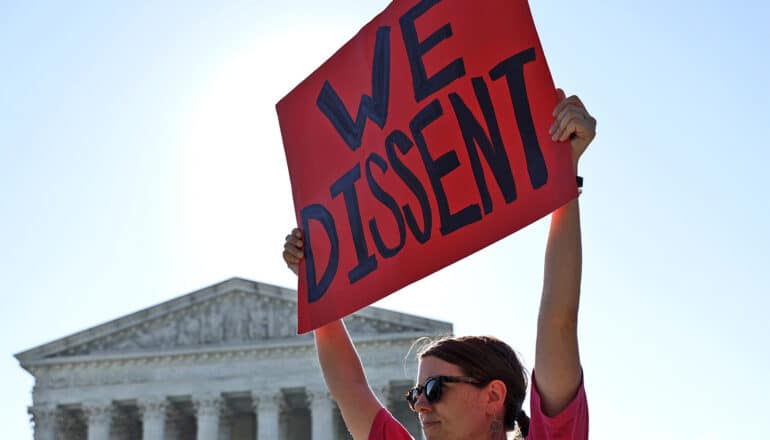
Since Roe v. Wade was overturned, fewer Michigan adults want to have children, according to new research.
When the US Supreme Court overturned Roe v. Wade in 2022, it created uncertainty for Americans’ access to abortion and other forms of reproductive health care. This uncertainty may have led to an increase in the number of Michigan adults who say they never want to have children, according to researchers.
“Before the Supreme Court overturned Roe through the Dobbs v. Jackson decision, about 21% of Michigan adults did not want children, or were ‘childfree,'” says Jennifer Watling Neal, Michigan State University professor of psychology and coauthor of the study. “But this number jumped to 26% after the Supreme Court decided that access to abortion is not protected by the US Constitution.”
The study, published in PLOS One, used data from Michigan State University’s State of the State Survey, conducted by the university’s Institute for Public Policy and Social Research. It focused on a representative sample of 2,500 adults surveyed in the months before the Supreme Court’s decision on Dobbs v. Jackson was leaked and a representative sample of 2,000 adults surveyed in the months after the Supreme Court’s decision in Dobbs was announced.
“We knew that childfree adults were a large group in Michigan, but with more uncertainty around reproductive health care, even more adults don’t want children than before,” says Zachary Neal, a professor of psychology and coauthor of the study. “After taking into account adults’ sex, age, race, and education, the probability that a Michigan adult never wants children increased by almost a third.”
In late 2022, following the passage of Proposal 3, which protects the right to reproductive freedom, the Michigan Constitution was amended to protect access to abortion. However, Watling Neal explains, “That protection came only after a lot of uncertainty and legal chaos, which may have led potential parents to decide having children simply isn’t worth the health risks.”
Since the Supreme Court’s decision on Dobbs, several other states have either restricted access to reproductive health care or attempted to protect access in their constitutions.
“Our findings suggest that federal and state restrictions on access to reproductive health care may not only harm individuals’ health, but also lead to fewer new births,” says Neal.
The research team will next explore adults’ desires to have children from a global perspective and the role that politics may play in this.
Source: Michigan State University
The post Since Roe was overturned, fewer Michigan adults want kids appeared first on Futurity.
from Futurity https://ift.tt/NQgUq9I
No comments:
Post a Comment